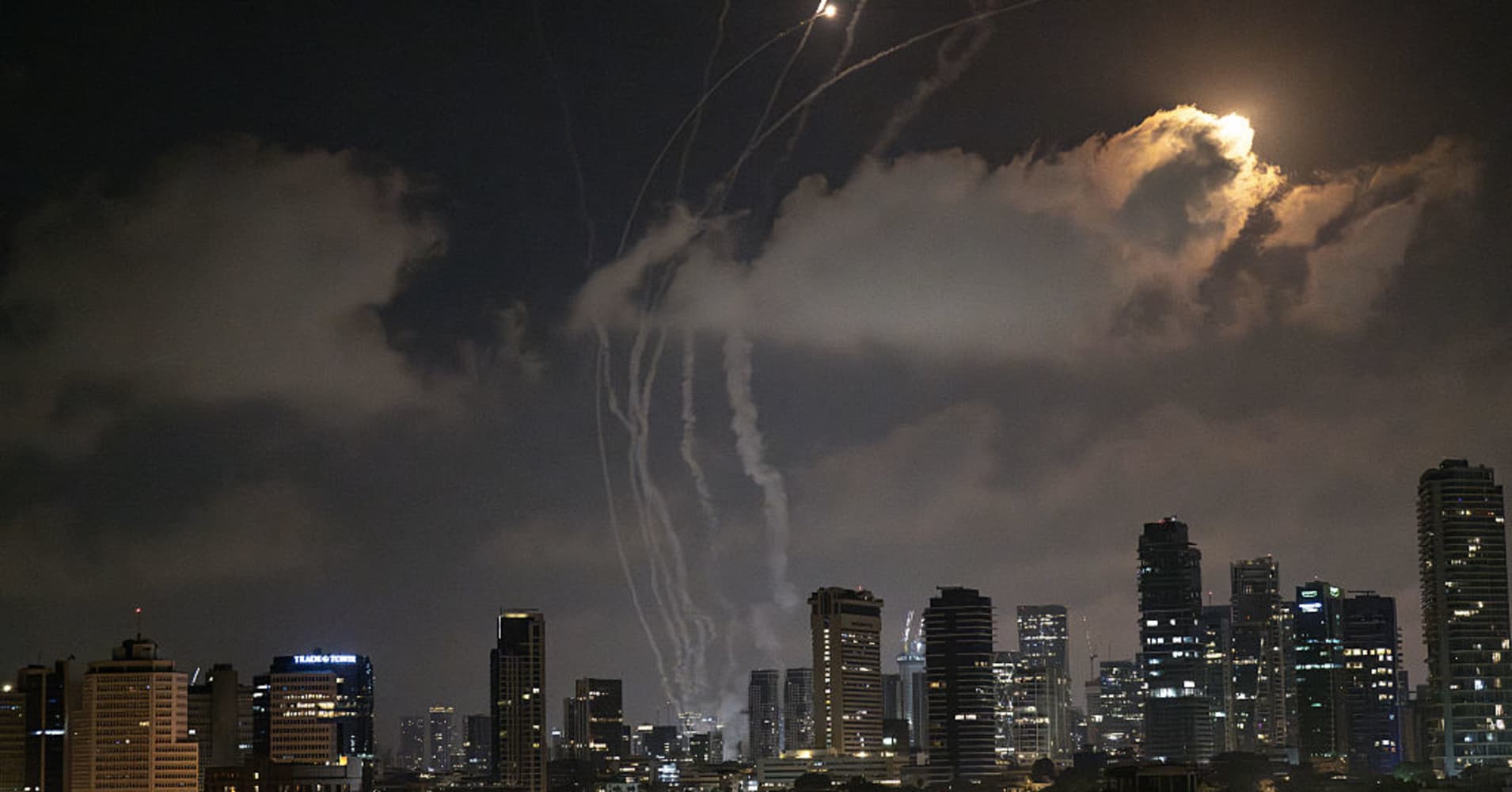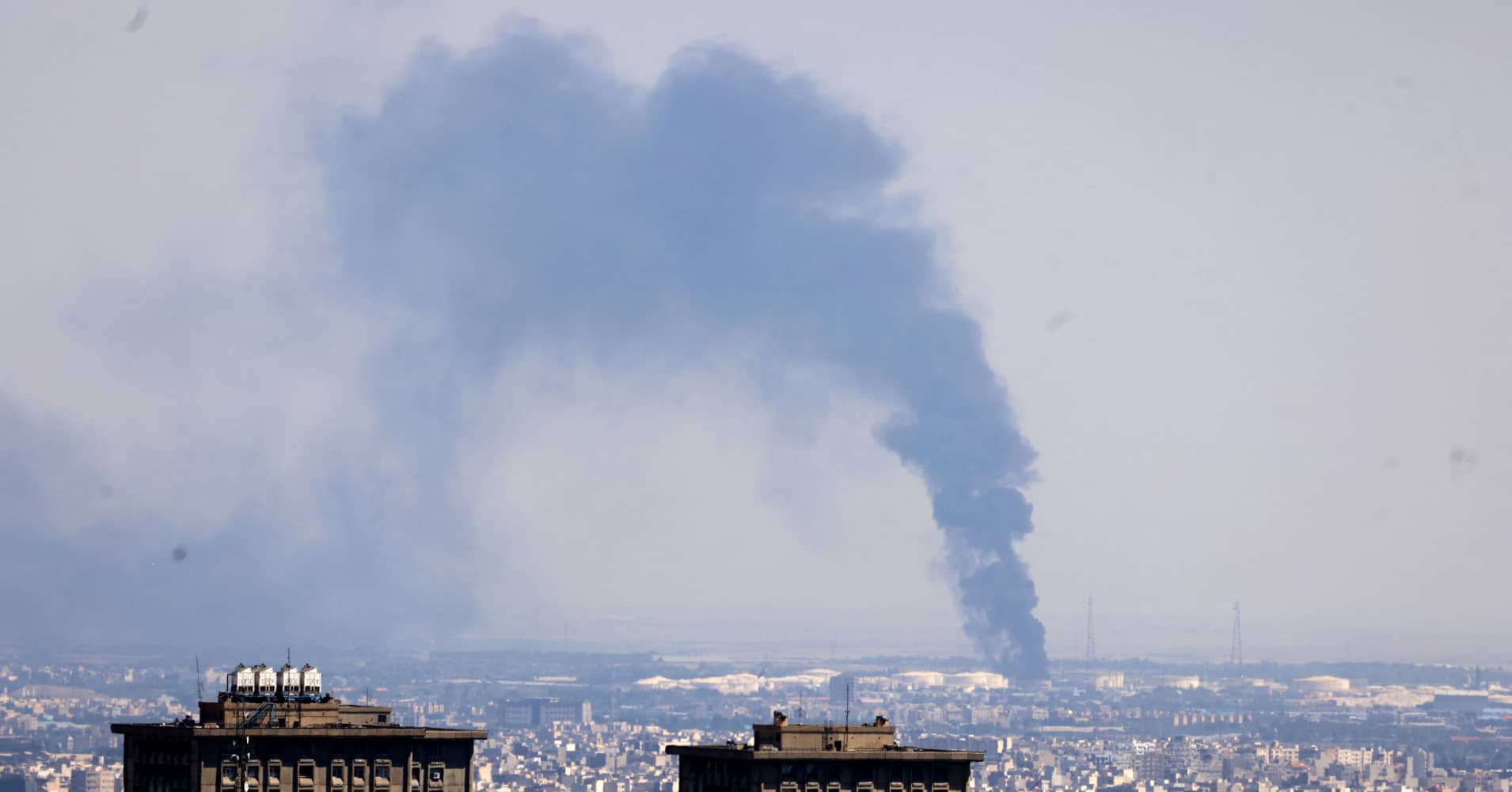- Analysts have been left scratching their heads over the outlook for oil prices amid Israel and Iran’s conflict.
- U.S. President Donald Trump on Tuesday called for an “unconditional surrender” from Iran, warning Washington’s patience was wearing thin.
- Energy market participants continue to weigh the likelihood of direct U.S. involvement in the conflict, as well as the potential for major supply disruptions.
Analysts are struggling to predict the extent to which Israel and Iran’s escalating conflict could influence oil prices.
Israel’s
surprise attack
on Iran’s military and nuclear infrastructure on Friday has been followed by five days of spiraling warfare between the regional foes.
U.S. President Donald Trump on Tuesday called for an ”
unconditional surrender
” from Tehran, warning Washington’s patience was wearing thin.
Energy markets are weighing the likelihood of direct U.S. involvement in the conflict, as well as the potential for major supply disruptions — particularly worst-case scenarios, such as Iran blocking the
highly strategic Strait of Hormuz
that links the Persian Gulf to the Gulf of Oman.
John Evans, an analyst at oil broker PVM, said Wednesday that a “blanket of unease” had descended upon oil markets in recent days.
“Our market is settling into a world where missile exchanges are commonplace but the cynicism of it being normal has yet to set in because of how easily the situation could escalate,” Evans said in a research note.

Israel’s Bazan oil refinery complex
sustained damage
from an Iranian attack earlier this week, while an
Israeli airstrike
at the South Pars field, the world’s largest gas field, prompted Tehran to partially suspend production. The South Pars gas field is shared between Iran and Qatar.
“The situation is as fluid as the underlying commodity it mostly affects and while there is a fraternal ‘your guess is [as] good as mine’ in future price divination, positioning will continue to be at least defensively long,” PVM’s Evans said.
The chief executives of oil companies of
TotalEnergies
,
Shell
, and
EnQuest
told on Tuesday that further attacks on critical energy infrastructure
could have serious consequences
for global supply and prices.
‘It is a roulette’
Oil prices, which have jumped in recent days, were trading in mixed territory on Wednesday.
International benchmark
Brent
crude futures with August delivery stood little changed at $76.43 per barrel at 12:48 p.m. London time. U.S.
West Texas Intermediate
futures with July delivery, meanwhile, traded flat at $74.86 per barrel.
Per Lekander, founder of investment management firm Clean Energy Transition, described the situation for oil markets ahead of Israel’s attack on Iran last week as “bad,” given plentiful supply growth from OPEC and non-OPEC producers and soft demand.
Read more
Top oil CEOs sound the alarm as Israel-Iran strikes escalate
Trump weighs potential U.S. military strike on Iran, demands ‘unconditional surrender’
Oil prices extend rise as Iran-Israel conflict enters sixth day
“I was increasingly convinced we were heading for a 2014/2020 reset lower to $30-50 to get capex down and start a new cycle. In fact, the current conflict makes that outcome even more likely when [the] conflict is over as producers are now producing and hedging as much as they can,” Lekander said in a note.
“While this is going on it is a roulette. We have a $10 [per barrel] risk premium in the price which is fair given that there clearly are some interruptions (mainly Iran exports and some lower tanker loadings),” he added.
What next for oil prices?
Looking ahead, Stephen Schork, editor of The Schork Report, on Wednesday said that a significant escalation in the Israel-Iran conflict could push oil prices substantially higher.
“We’re kind of stabilizing right now. I think we’re waiting for that next headline to come out and really, I think that anyone who does not think oil could go higher, I really think they are trading on hope and not reality,” Schork told ‘s ”
Access Middle East
.”
“We are now facing the biggest threat to the oil markets since Iraq invaded Kuwait in 1990 and perhaps even greater than the 1974 Arab oil embargo,” he added.
Schork said there was a roughly 5% chance of oil prices climbing to above $103 per barrel within the next five weeks, with much longer odds of crude soaring as high as $160 per barrel by the end of summer, if flows out of the Persian Gulf are seriously disrupted.











